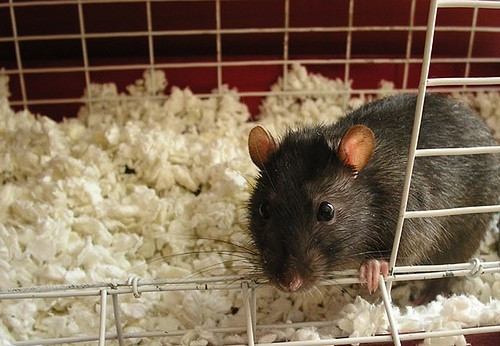Humans did not invent morality says study showing moral behaviour in rats

Humans probably inherited morality rather than invented it, suggests an experiment showing that rats can be as morally strong as humans.
The rodents tend to help out fellow rats, even in situations where they do not stand to lose anything by refusing help.
This demonstration of prosocial behaviour seen in the new experiment led the researchers to suggest biological mechanisms probably evolved to keep a group of individuals together.
Researchers at the Champalimaud Centre for the Unknown in Lisbon led by Cristina Márquez and Marta Moita gave the rats a choice of helping out partners with food or not. The decision did not deprive the helpers in any way.
A double T-maze with two rats - one assigned to be the "helper" and the other the "partner" – saw the helper having to decide whether or not to help the partner get food.
By tapping the "nose port" on one door, the helper would get a food pellet for itself. By tapping a port on another door, a pellet would be dispensed to both the helper and the partner.
The study was done under automatic conditions with no human interference.
Around 70% of the time, the helper would tap the second door, dispensing food to both rats. However, a display of food-seeking behaviour by the "partner" rat was necessary to drive the "helper" rat to make prosocial decisions.
Only one out of the 15 rats studied made selfish choices, said Márquez.
Prosocial behaviour is different from altruism in that there is no cost to the rat lending aid.
In past experiments, the prosocial inclination of rats was measured only when the animals were in stressful conditions like being drowned where most rats tend to act to save another rat from drowning.
In the present experiment the rats were not placed under stress.
"Prosociality is beneficial in many situations, for both humans and rats," said Moita.
"It is possible that the stories we construct about the motives to our social actions could also be explained by biological mechanisms that have evolved to keep a group of individuals cohesive," says Moita.
The research appears in Cell Press.
An earlier study of rats in Norway showed that they not only offer help to those that have helped them before, but the quality of help provided depends on the perceived value of what they will get in return. Rats prefer bananas to carrots and helped those that provided the banana more often.
Asian elephants
Researchers at Emory University in Atlanta looked at captive Asian elephants to record compassion shown by the pachyderm to another in stress.
Elephants would go to the side of the animal in distress and touch its face using the trunk, in a gesture similar to a human handshake or hug.
Dolphins have been seen to exhibit specific preferences and aversions to fellow dolphins.
© Copyright IBTimes 2025. All rights reserved.





















